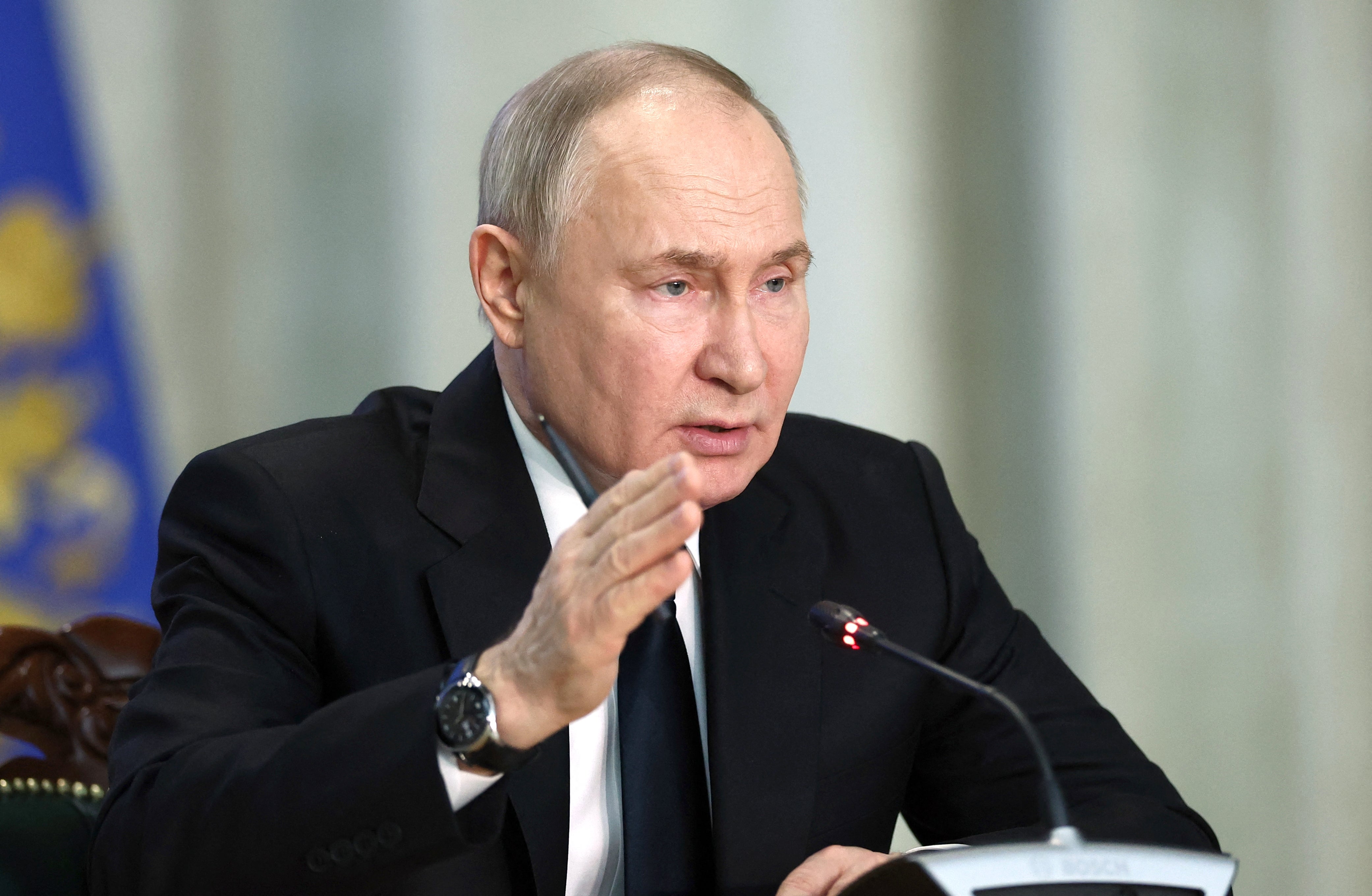Russia is plotting attacks across Europe – and they’re only going to get worse
The Kremlin stands accused of everything from arson attacks in the UK to targeting GPS systems used to navigate flights, writes Keir Giles. As the country recruits more freelancers to act on its behalf, we should prepare for the dangers ahead

A British man has been charged over an arson plot targeting a Ukrainian business after allegedly being recruited by a Russian spy – and establishing links with the mercenary Wagner group.
The suspect, Dylan Earl, will face trial under the new National Security Act, the first case under the new legislation to crack down on foreign spies. Four other men have also been charged in connection with the plot.
But the case should not be seen as an isolated incident. There is a much broader, and more serious, Russian campaign of sabotage spanning the whole of Europe. And more disturbingly, the patterns of behaviour match predictions of what Russia would attempt to do in advance of open conflict with Nato.

It seems there are few parts of Europe not targets. Earlier in April, Germany arrested two individuals on suspicion of planning attacks on behalf of Russia, with a range of targets including US military bases. In Lithuania, Moscow has used organised criminal networks to arrange physical attacks on Russian opposition figures.
Swedish security police are investigating if possible sabotage could be behind a number of railway derailments in the far north of the country, while the Estonian security services have logged intensified Russian efforts to recruit local citizens to attack their own government.
Poland, which has key routes for getting supplies into Ukraine, has been targeted more frequently. Earlier this month, Polish authorities arrested a man reconnoitring security arrangements at the important Rzeszow airport, apparently with the intention of aiding an assassination attempt on Ukrainian president Volodymyr Zelensky. Last year, the country’s train network was targeted by unauthorised radio signals in an act of apparent sabotage.
But recruiting proxies is just one of the ways Russia is already attacking Europe beyond Ukraine.
There’s a similar pattern in Russian electronic warfare disrupting flights around the Baltic Sea region. In March, Russia jammed the signal of an RAF plane carrying Grant Shapps and, just last week, Moscow was accused of targeting thousands of flights to and from UK airports.
But that’s long been the norm for aircraft in the region. Far from being something that just affects Britons passing through, this is a major problem over an expanding area of Europe that dates back years and is becoming increasingly serious.

This is so much the case, that it’s now treated as normal for a number of navigation systems to be unavailable over the Baltic and Black Seas. In northern Norway too, Russian GPS interference is not only disrupting air traffic on a daily basis, but hampering the work of police and emergency services.
That doesn’t mean flying in Europe is unsafe – since airliners are still able to use a number of fallback options – but it does mean that some of the systems that ensure safe navigation and collision avoidance are no longer available. And where airports are reliant on GPS-based services, landing becomes impossible and flights have to divert or even give up altogether and return to their starting point.
Airlines are understandably cautious about bringing attention to an issue that some passengers might see as compromising their safety. But the economic costs and disruption are high and increasing – and it’s hard to see how much longer this can go on.
The growing impact of flight cancellations and aborted landings is a cost that’s directly attributable to Russian action. But Western inaction means there are no consequences for Moscow.
At sea too, Russia is hard at its disruptive work. Moscow’s “ghost fleet” of vessels with mystery owners, suspect insurance, and registrations in places like Eswatini (which, as a landlocked country, is not a traditional seafaring nation) has been particularly busy with sanctions evasion and espionage around the Baltic island of Gotland, long recognised as a key target because of its importance for controlling sea and air traffic in the region.
All of these are examples of hostile action from Russia becoming gradually normalised because nobody is willing or able to deal with it
Again, the problem might look like a local one – but there are immediate costs for us all in the form of disruption and higher shipping costs and insurance rates. There are also the long-term implications of what Russia may be preparing to do.
And this last weekend, vessels in the region reported a wave of GPS outages, indicating that disruptive electronic warfare from Russia has stepped up a gear and is now affecting surface sea traffic. If nothing is done, the logical next step is for Moscow to attempt to block GPS for road traffic too.
With millions of navigation systems dependent on GPS location services, doing so could sow chaos on land across the region.
All of these are examples of hostile action from Russia becoming gradually normalised because nobody is willing or able to deal with it. In this way, Russia pushes the boundaries of what is acceptable, or at least accepted, by doing something that should be outrageous, and then doing it more when there is no response from the West.
But there’s more. In 2020, I co-wrote a study for the Swedish Defence Research Agency on what military planners call A2AD, or anti-access/area denial – in other words how in the event of war, Russia could try to keep Nato forces from moving to where they were needed.

My chapter looked at the number of ways Russia could immobilise Europe even before a conflict, without firing a shot. What’s alarming now is that so many of the methods I described, including GPS jamming, sabotage, local proxies and much more, are now already in play across Europe and in the UK. Russia has sharply stepped up its campaign against us, and that’s a danger sign for what may come next.
Russia’s methods have evolved. The murder gangs that roamed Europe in the previous decade, including targeting Sergei Skripal in Salisbury, were made up of Russian military and intelligence officers.
Now, the pattern of attacks, including in the UK, shows Russia recruiting freelancers on their behalf. That could be because its own people are too easily identified, or too busy behind the lines in Ukraine. But the pattern shows what we’ve long known: that Russia can always find unscrupulous individuals to attack their own countries on Moscow’s behalf.
The British arson suspects have been charged under the new National Security Act, which has come into force none too soon, since previously a wide range of hostile actions against the UK on behalf of foreign powers were perfectly legal.
Russia’s increasingly bold aggression across Europe and the UK shows that we are all under attack. So it’s encouraging to see the Act already in use; but as Russia’s campaign continues, we should be prepared for plenty more shocking cases to be heard.
Keir Giles works with the Russia and Eurasia Programme at Chatham House. His next book will be ‘Who Will Defend Europe’ (October 2024)
Join our commenting forum
Join thought-provoking conversations, follow other Independent readers and see their replies
Comments


Bookmark popover
Removed from bookmarks